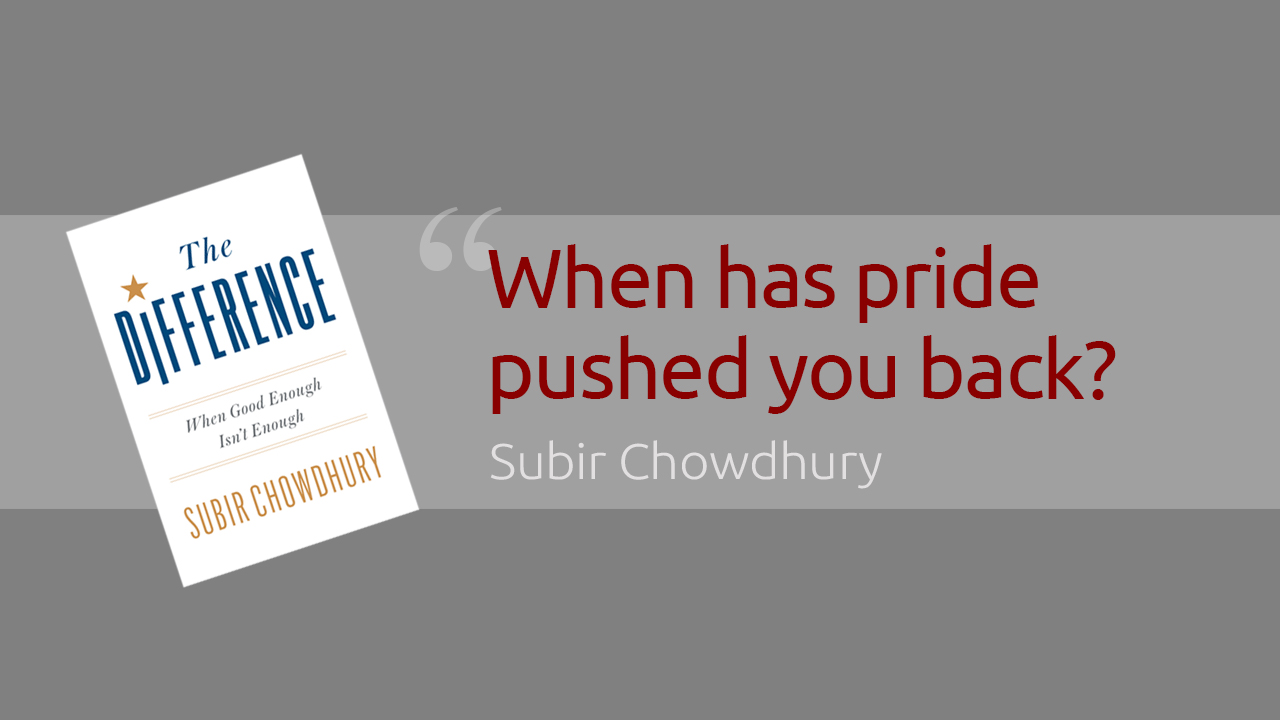Has pride ever prevented you from moving forward and instead pushed you back?
Quality & Me
Subir shares short stories about what people do to make a difference everywhere they go. We can make huge contributions to the way we function as a society by standing out as an example within our own community: at work, at our places of worship, among our colleagues, friends, and family. All it takes is the courage to step up and being straightforward, thoughtful, accountable, and resilient.
It’s wonderful to have pride in your work, or to be proud of your children. But pride has a dark side, called “ego”. If left unchecked, your ego can get in the way of being straightforward.
Pride exists at the organizational level and can just as easily become tainted. Think about it. How many times have you witnessed senior level executives not acknowledging a problem? The reason? Pride. Ego. They don’t want to admit that there is a problem because of ego: someone else will think they’re weak, or that they’ll lose face. To admit your decision was wrong means you are weak, correct? Absolutely the opposite!
I once shared with a head of product development that I had saved another organization a billion dollars through our company’s work. I even showed him an article that backed up my statement. I had been wanting to work with his organization, so I thought this would be a good way to break the ice. When we met, I told him that I was confident I could save his organization $500 million. He told me they were already doing well, and even intimated that the other company had “faked” the data.
Yes, he used the word “fake”.
You can only imagine what I was thinking in that moment. I asked him if he realized he had just accused me of cheating. To his credit, this guy quickly apologized, but again told me they were doing well. My instincts told me his ego was getting in the way of admitting they could be doing better. In his mind, admitting his organization could be doing better meant he had somehow failed.
I pushed him and asked him if he was saying there was absolutely no room for improvement. He told me that, of course, there is always room for improvement. I asked him if he was afraid to admit he could use help. After a pause, he responded that he was, indeed, concerned to admit he could use some help.
You can’t fix a problem if you deny it exists. If you allow your ego to get in the way, you’ll never move forward. When was the last time pride prevented you from moving forward, and instead pushed you back?



















